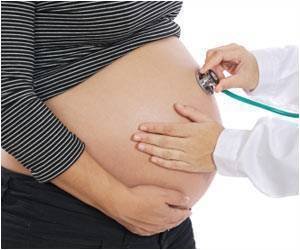Pregnancy Complications Linked to Woman’s Stroke Risk at Midlife

Past studies in the U.S. show that women have a greater risk of experiencing a stroke and a disproportionate burden of disability after a stroke than men. This new study deepens the understanding of why women are more greatly impacted by stroke risk and open the door to more meaningful conversations about
).
It is estimated that 1 in 5 pregnancies in the U.S. are affected by an adverse pregnancy outcome, and rates are on the rise. To reduce the risk of pregnancy-related complications, recent research suggests that lifestyle interventions and the use of low-dose aspirin in individuals are at increased risk.
In this study, researchers analyzed data from 144,306 women from the FinnGen Study, a public/private partnership of Finnish health registry data. This cohort included women who gave birth after 1969 when the hospital discharge registry was established.
Advertisement
They found that 17.9% had at least one pregnancy with an adverse pregnancy outcome, and 2.9% of women experienced an adverse pregnancy outcome with two or more pregnancies.
Of women in this study who had a stroke, the stroke occurred at an earlier age52.6 years on averagein women who experienced two or more adverse pregnancy outcomes, compared with 54.8 years in women with one adverse pregnancy outcome, and 58.3 years in women who had uncomplicated pregnancies (2✔ ✔Trusted Source
Risk of Midlife Stroke After Adverse Pregnancy Outcomes: The FinnGen Study
Go to source).
Most notably, women with recurrent adverse pregnancy outcomes had more than twice the stroke risk before age 45. This emphasizes the need for women to share their pregnancy history with their doctors, especially if they experience neurologic symptoms.
Stroke Prevention: Things to do in Lifetime
A stroke happens when blood flow to the brain is stopped; it is considered a medical emergency requiring immediate attention. A stroke might affect a person’s ability to move, speak, eat, drink, swallow, see clearly, think and remember, solve problems, or control bodily functions like urination and emotions.
Researchers also need future research to consider the impact of adding an adverse pregnancy outcome into stroke risk calculators. This may better help us risk-stratify women and strategize how to apply prevention strategies like getting cholesterol and blood pressure under control (3✔ ✔Trusted Source
Women and Stroke
Go to source).
There are several preventive strategies womenespecially young women with a history of stroke, migraine headaches, or TIAscan focus on to protect against the risk of stroke.
The first thing is that women should feel empowered to collect their health data by monitoring their blood pressure and sharing their recorded readings during their medical appointments.
Womenand menshould also avoid hyperextending their neck and deep neck massages, because the neck has critical blood vessels that are near the bone and can be injured if too much force or quick twisting motions are applied.
Another preventive strategy is women on hormone treatment need to be cautious to decrease clotting risk. Avoid smoking, limit alcohol intake, get good hydration, wear compression stockings, and stretch your legs whenever you can decreasing the risk of clotting.
References :
- Pregnancy and Stroke Risk in Women
– (https://journals.sagepub.com/doi/10.2217/WHE.11.19
) - Risk of Midlife Stroke After Adverse Pregnancy Outcomes: The FinnGen Study
– (https://www.ahajournals.org/doi/10.1161/STROKEAHA.123.043052
) - Women and Stroke
– (https://www.cdc.gov/stroke/women.htm
)
Source: Eurekalert
Source link
#Pregnancy #Complications #Linked #Womans #Stroke #Risk #Midlife



